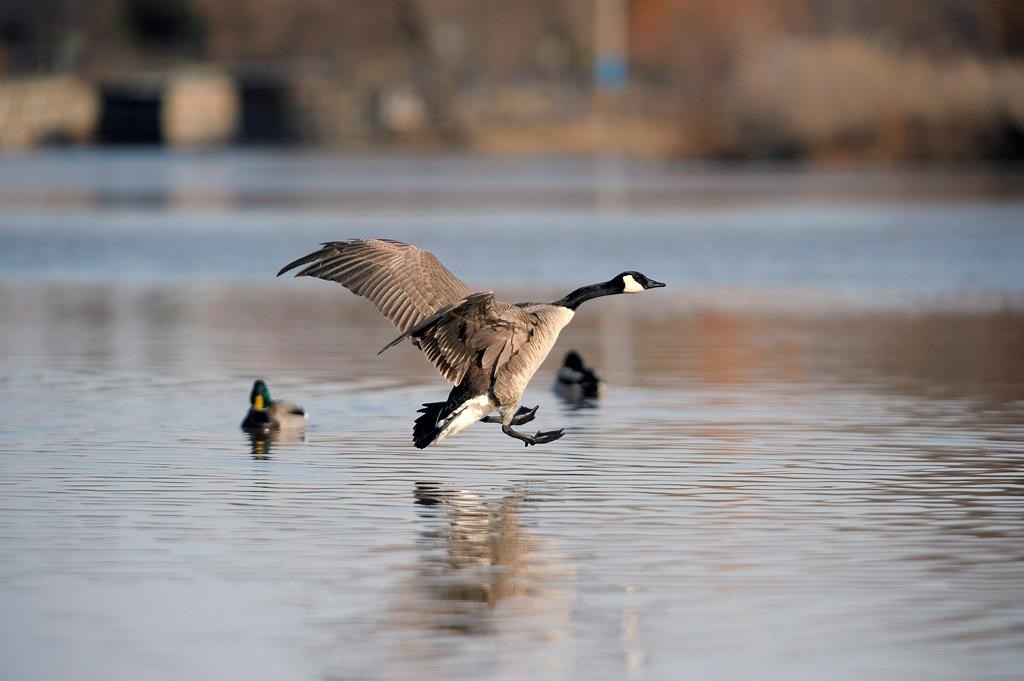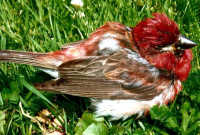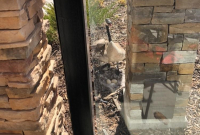Watch your step! Ecologist warns bird 'candy' catalyst for extreme goose poop

People who like to go for a stroll in Regina's Wascana Park are being advised that if they want to avoid stepping in goose poop, they should quit giving unhealthy snacks to the birds.
Ecologist Sarah Romuld says tossing bread crumbs, popcorn or cheese snacks to hundreds of Canada geese that nest in the park each year speeds up the birds' growth — which means more excrement.
It's estimated that nesting geese in the park drop more than 200 kilograms of waste there every day.
On average, adult geese excrete upwards of 900 grams per 24-hour period.
Romuld says human snacks also make the birds heavier and longer, which puts stress on the joints that hold their wings to their bodies.
She says the park has enough vegetation for geese to eat, but if visitors insist on feeding the waterfowl they should only give them spinach, lettuce, parsley or barley seed.
"When you’re feeding them bread that’s very calorie-rich, you are speeding up their growth to where their body is not prepared,” said Romuld. "Bread is in fact feeding birds candy. There’s no nutritional value in it."
About 250 to 300 geese nest in Wascana Park every year, although Romuld noted that their numbers change significantly from year to year.
She said a goose visiting the park could be nesting at a nearby golf course or a city-operated park in another part of Regina.
Wascana Park crews clear pathways of bird droppings, but not grassed areas.
Romuld said the excrement can get into Wascana Lake and add more phosphorus and nitrogen to the water. (CJME)





Comments